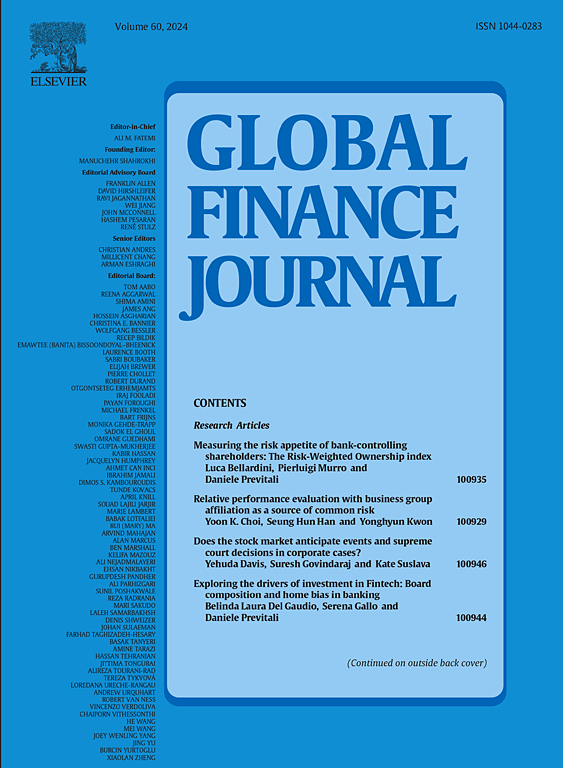Institutions and the sovereign-bank nexus in the MENA
IF 5.5
2区 经济学
Q1 BUSINESS, FINANCE
引用次数: 0
Abstract
We examine the role of country-level institutional quality in influencing the interlinkages between sovereign debt and domestic banks, commonly referred to as the sovereign-bank nexus, in the MENA region. Using a panel of 13 MENA countries, we find that stronger institutional quality reduces reliance on domestic banks for sovereign debt. Stronger rule of law, regulatory quality, and control of corruption have the most significant effects in reducing domestic bank holdings of sovereign debt. Consistent with substitution between foreign and domestic creditors, we find that stronger institutional quality is associated with higher holdings of sovereign debt by foreign creditors, and lower holdings by domestic central banks. We also show that stronger institutional quality reduces domestic bank balance sheet exposures to sovereign debt. Our findings remain robust after addressing potential endogeneity concerns using a two-stage least squares (2SLS) approach using Lewbel (2012) instruments. Extending our analysis to a broader sample of 96 countries, our results continue to hold, with the impact of institutional quality being more pronounced in the MENA region. Our results highlight the critical role of institutional quality in mitigating the sovereign-bank nexus and enhancing financial stability in the MENA region.
中东和北非地区的机构和主权银行关系
我们研究了国家层面的制度质量在影响中东和北非地区主权债务与国内银行之间相互联系(通常称为主权银行关系)方面的作用。通过对13个中东和北非国家的调查,我们发现更强的机构质量降低了对国内银行主权债务的依赖。加强法治、监管质量和控制腐败对减少国内银行持有的主权债务具有最显著的影响。与国外和国内债权人之间的替代一致,我们发现更强的制度质量与外国债权人持有更高的主权债务和国内央行持有更低的主权债务有关。我们还表明,更强的机构质量降低了国内银行资产负债表上对主权债务的敞口。在使用lebel(2012)工具使用两阶段最小二乘法(2SLS)方法解决潜在的内质性问题后,我们的研究结果仍然稳健。将我们的分析扩展到96个国家的更广泛样本,我们的结果继续成立,机构质量的影响在中东和北非地区更加明显。我们的研究结果强调了机构质量在缓解主权银行关系和加强中东和北非地区金融稳定方面的关键作用。
本文章由计算机程序翻译,如有差异,请以英文原文为准。
求助全文
约1分钟内获得全文
求助全文
来源期刊

Global Finance Journal
BUSINESS, FINANCE-
CiteScore
7.30
自引率
13.50%
发文量
106
审稿时长
53 days
期刊介绍:
Global Finance Journal provides a forum for the exchange of ideas and techniques among academicians and practitioners and, thereby, advances applied research in global financial management. Global Finance Journal publishes original, creative, scholarly research that integrates theory and practice and addresses a readership in both business and academia. Articles reflecting pragmatic research are sought in areas such as financial management, investment, banking and financial services, accounting, and taxation. Global Finance Journal welcomes contributions from scholars in both the business and academic community and encourages collaborative research from this broad base worldwide.
 求助内容:
求助内容: 应助结果提醒方式:
应助结果提醒方式:


